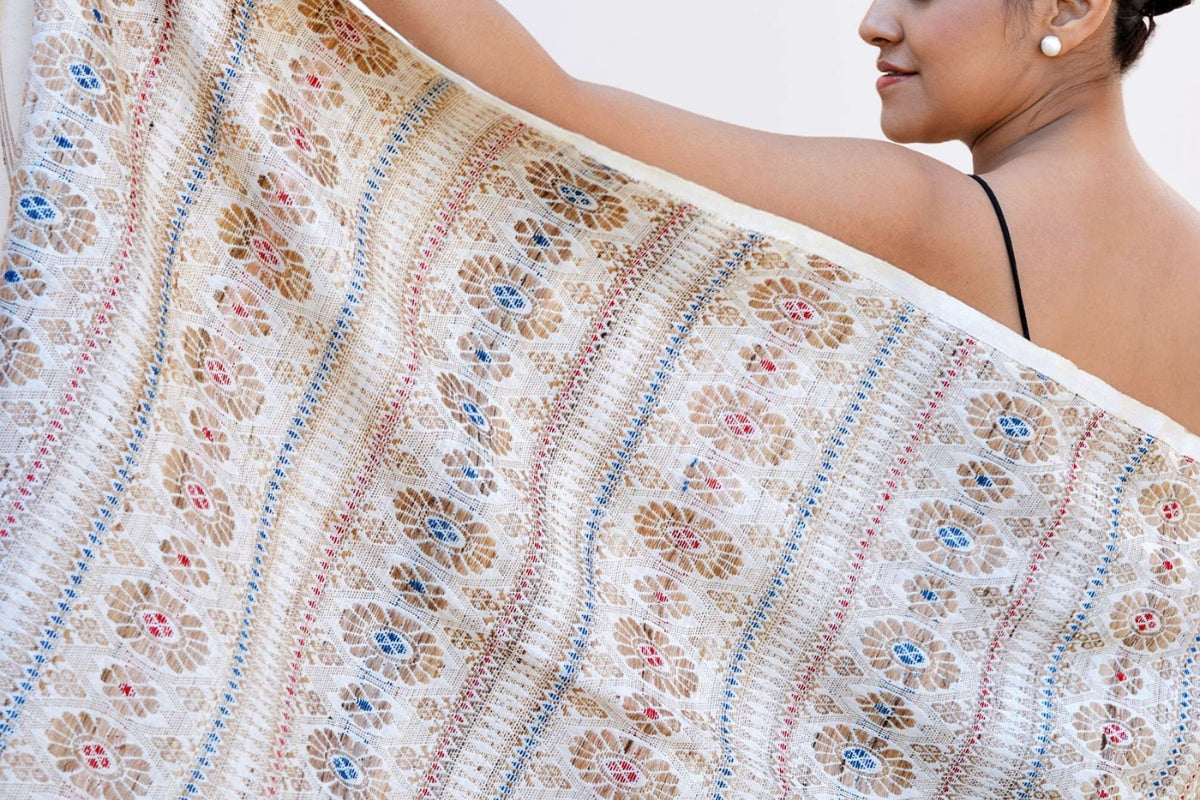Nuni silk, a luxurious fabric renowned for its unique properties and cultural significance, has garnered attention in the world of textiles. Originating from the indigenous tribes of the Himalayan region, particularly in India, Nuni silk is celebrated for its softness, durability, and intricate craftsmanship. This essay explores the characteristics, production process, and cultural relevance of Nuni silk, with a focus on its application in products like the Niseko White Nuni Shawl.
Characteristics of Nuni Silk
Nuni silk is distinguished by its exceptional softness and lightweight nature. The fibers are incredibly fine, making the fabric feel gentle against the skin while providing warmth without bulk. This quality is particularly appealing for shawls and wraps, as they can be worn comfortably in various climates. Additionally, Nuni silk has a natural sheen that enhances its aesthetic appeal, making it a favored choice for high-end fashion and accessories. The fabric's durability is another notable characteristic. Unlike many other silk varieties that can be delicate and prone to damage, Nuni silk is resilient and can withstand regular wear. This durability ensures that garments made from Nuni silk not only look beautiful but also last longer, making them a worthwhile investment.



Production Process
The production of Nuni silk involves traditional methods that have been passed down through generations. The process begins with the careful harvesting of silkworm cocoons, which are then boiled to extract the silk threads. Artisans skillfully spin these threads into yarns, which are subsequently woven into fabric using traditional looms. This labor-intensive process requires a high level of skill and attention to detail, contributing to the overall quality of the final product.
One of the unique aspects of Nuni silk production is its sustainable approach. Artisans often use natural dyes derived from local plants and minerals to color the fabric. This not only minimizes environmental impact but also results in rich, earthy tones that reflect the beauty of the surrounding landscape.
Cultural Significance
Nuni silk holds significant cultural importance among the communities that produce it. It is often used in traditional garments worn during festivals and ceremonies, symbolizing heritage and identity. The intricate designs and patterns woven into Nuni silk fabrics often tell stories or represent local folklore, adding layers of meaning to each piece. The Niseko White Nuni Shawl exemplifies this cultural richness. Made from high-quality Nuni silk, this shawl features elegant designs that resonate with both contemporary fashion trends and traditional artistry. Its versatility allows it to be styled in various ways, making it suitable for both casual outings and formal occasions.
Conclusion
In summary, Nuni silk is a remarkable textile that combines beauty, durability, and cultural significance. Its soft texture and lightweight nature make it ideal for luxurious garments like shawls, while its sustainable production methods reflect a commitment to environmental stewardship. As seen in products like the Niseko White Nuni Shawl, this fabric not only serves practical purposes but also embodies the rich heritage of the communities that create it. Embracing Nuni silk means appreciating not just a fabric but a story woven through generations of craftsmanship and tradition.





